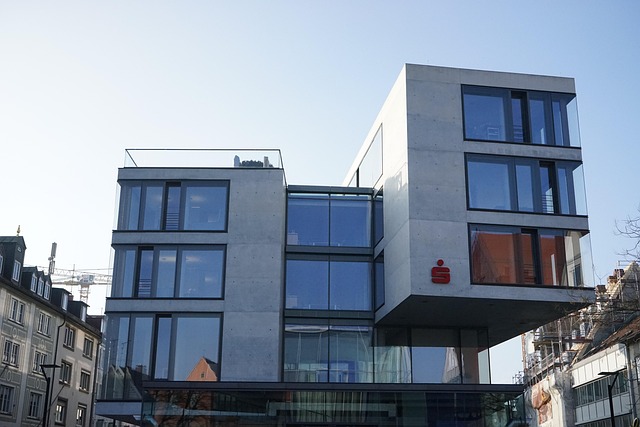Addiction Recovery in Nashua NH: Inspiring Success Stories & Center Guidance
Addiction Recovery Centers in Nashua, New Hampshire, are crucial resources for individuals battling…….
Over 15% US adults have used prescription painkillers not prescribed to them.
In the heart of New Hampshire’s vibrant city of Nashua lies a dedicated network of addiction recovery centers, offering hope and healing to those battling substance use disorders. This article aims to delve into the world of these specialized facilities, exploring their role, impact, and evolution in addressing the pressing issue of addiction within the local community and beyond. By examining various facets, from historical roots to technological innovations, we will uncover the significance of Nashua’s recovery centers in shaping a path towards a healthier future.
An addiction recovery center, at its essence, is an intensive treatment facility dedicated to providing comprehensive care for individuals struggling with substance use disorders, including alcoholism, drug addiction, and behavioral addictions. These centers typically offer a range of services such as detoxification, counseling, therapy, support groups, and aftercare programs. The core components include:
The concept of dedicated recovery centers has evolved over the past few decades, driven by growing awareness of addiction as a chronic disease. In Nashua, New Hampshire, this evolution mirrors national trends. Early treatment approaches focused primarily on institutionalization, with long-term stays in psychiatric hospitals. However, the 1980s and 1990s saw a shift towards more community-based, outpatient programs, recognizing the importance of family support and social environments in recovery.
Today, Nashua’s addiction recovery centers cater to a diverse range of individuals, from young adults to seniors, offering tailored programs to address unique needs. The centers play a crucial role in:
Addiction recovery centers worldwide draw inspiration from one another, sharing best practices and adaptive strategies. Nashua’s centers, in particular, have contributed to global efforts by participating in research studies, collaborating with international organizations, and welcoming diverse patients who seek specialized care. This international exchange fosters a more holistic understanding of addiction as a global challenge.
Access to quality recovery centers varies significantly across regions. Urban areas generally have a higher density of facilities, while rural communities often face challenges due to limited resources and transportation issues. This disparity highlights the need for accessible, community-based solutions, as seen in Nashua’s innovative outreach programs.
The global addiction treatment market is experiencing steady growth, driven by increasing substance abuse rates and growing awareness of mental health issues. In New Hampshire, including Nashua, this translates to a rising demand for recovery services. Local centers adapt by offering specialized programs and expanding their client base, contributing to the overall economic health of the region.
Private investments in addiction recovery centers have increased, reflecting the sector’s potential for positive social impact and financial returns. In Nashua, partnerships between local businesses and recovery organizations have led to the development of state-of-the-art facilities, attracting both local and out-of-state clients.
One of the most significant technological advancements is the integration of digital therapy and telehealth into recovery programs. Through online counseling sessions, mobile apps for medication tracking, and virtual support groups, individuals can access care remotely, increasing accessibility, especially in rural areas.
AI-powered tools are revolutionizing addiction treatment by enabling personalized treatment plans based on individual patient data. Advanced analytics help predict relapse risks, allowing for proactive interventions. These technologies enhance the efficiency and effectiveness of recovery programs.
VR is being utilized to create immersive therapeutic experiences, helping individuals confront triggers and phobias in a safe environment. This innovative approach shows promise in treating anxiety, PTSD, and other co-occurring disorders commonly associated with addiction.
Addiction recovery centers operate within a framework of state and federal regulations designed to ensure quality care and patient safety. These include licensing requirements, standards for staff qualifications, and guidelines for ethical practice. New Hampshire’s Department of Health and Human Services oversees the regulation of such facilities, collaborating with national organizations to maintain high standards.
Despite progress, challenges remain in terms of access, particularly in rural areas with limited transportation options. This issue underscores the need for more community-based treatment centers and innovative outreach programs.
Stigma surrounding addiction continues to hinder individuals from seeking help. Recovery centers play a vital role in challenging these misconceptions through public education and awareness campaigns, encouraging open dialogue about addiction as a treatable illness.
Ensuring long-term sustainability is crucial for the continuity of recovery services. While public funding is essential, diverse funding sources, including private investments and grants, can help maintain and expand these facilities.
Recovery Nashua is a prime example of a successful community-based approach. Founded in 2015, this non-profit organization offers a range of services, from outpatient therapy to residential treatment. Their unique model includes:
The New Hampshire Recovery Center (NHRC) has been at the forefront of technological advancements in addiction treatment. Their state-of-the-art facility incorporates:
Addiction recovery centers in Nashua, New Hampshire, represent a vital component of the global effort to combat addiction and promote community well-being. Through comprehensive care, innovative technology, and robust policy support, these centers have made significant strides in helping individuals reclaim their lives. As the field continues to evolve, the focus on personalized treatment, community engagement, and global collaboration will be key to shaping a brighter future for those affected by addiction.
Q: What types of therapy do Nashua’s recovery centers offer?
A: Recovery centers in Nashua typically provide a range of therapeutic approaches, including cognitive-behavioral therapy (CBT), motivational interviewing, family therapy, and group counseling sessions. These therapies help individuals understand and change maladaptive behaviors and thought patterns associated with addiction.
Q: How do I know if I or a loved one needs professional help for addiction?
A: Addiction is characterized by a loss of control over substance use, continued use despite harmful consequences, and strong cravings. If you experience these symptoms and they interfere with your daily life, it’s essential to seek professional help. Early intervention is crucial in achieving positive outcomes.
Q: Are recovery programs covered by insurance?
A: Many insurance providers offer coverage for addiction treatment, including outpatient and inpatient services. However, coverage details vary, so it’s essential to check with your specific provider. Recovery centers can assist with navigating insurance benefits to ensure accessible care.
Q: How can I find the right recovery center for my needs?
A: Consider factors like location, program offerings, therapeutic approaches, and cost. Research centers that align with your or your loved one’s specific needs, such as specialized programs for adolescents or co-occurring disorders. Reading reviews and reaching out to facilities for personalized information is also beneficial.

Addiction Recovery Centers in Nashua, New Hampshire, are crucial resources for individuals battling…….

Emergency addiction intervention is crucial for acute crises, with specialized Addiction Recovery Ce…….